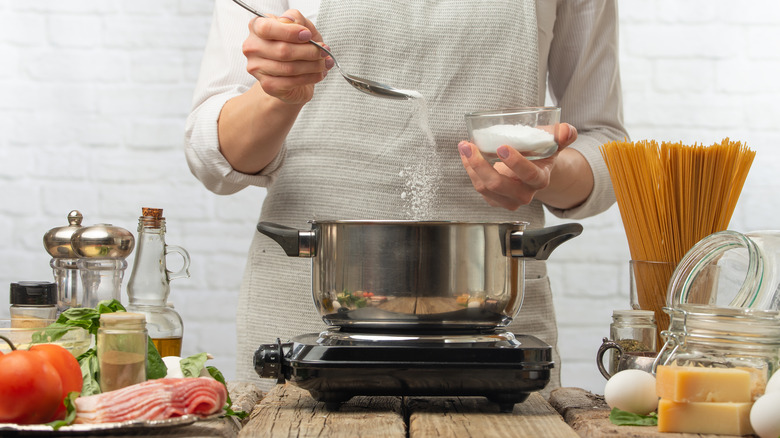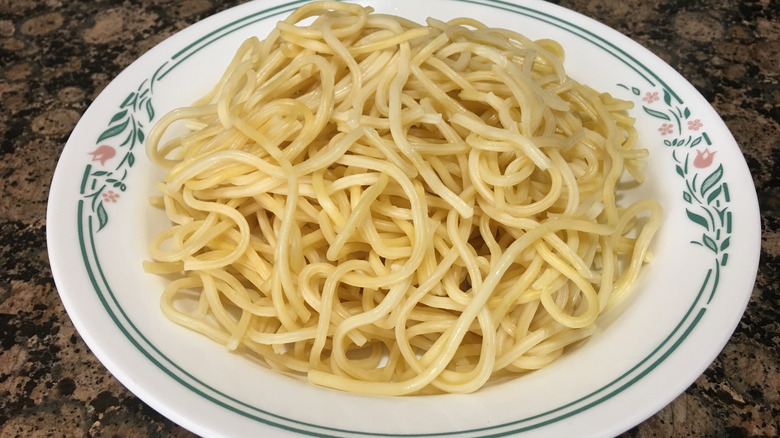Why It's Actually Okay Not To Salt Your Pasta Water
When it comes to food "rules," you'd be surprised how few of them are really hard and fast. While food experts and amateurs alike will practically scream their insistence that you absolutely MUST double-fry your potatoes or only cook with "really good" olive oil or tear your lettuce or save your pasta water or any number of other supposed culinary sacred cows, if you ignore this advice, what happens? Gordon Ramsay calls you an idiot sandwich? Not likely, unless you're turning your every cooking session into a TikTok video. In fact, you're likely to find that breaking most of these so-called rules won't ruin your food or, in most cases, make much difference. (Except the one about not eating pink chicken, since these consequences could be very unpleasant.)
Case in point: salting pasta water. While many people were shocked and irate to find that Olive Garden restaurants don't salt their pasta water as they insisted that the salt is absolutely crucial for the flavor, others wondered, is it really that big a deal if you skip it? There are a few legitimate reasons that you might not want to salt your pasta water. For one thing, even though salt does tend to be fairly inexpensive, at least if you're not using the pricey specialty kind, it's still kind of wasteful since only a small portion of the ingredient is absorbed into the noodles. For another, if you're watching your sodium intake, why add salt where it's doing so little good?
The salt isn't helping as much as you think
Unless you are eating your cooked noodles plain, the fact that they are or are not salted doesn't make much difference to the overall flavor of the dish. Even the great James Beard himself didn't advocate using salted water in his "Beard on Pasta," while the South China Morning Post notes that neither noodles nor rice in Asian dishes is typically cooked with salt.
On a recent Reddit thread, one person commented, "I am a sous chef at an Italian restaurant, and we do not salt our pasta water," explaining "it is much more consistent, and easier, to season the dish in the pan." Another said, "I worked for an upscale sicilian restaurant for a while. Awesome pasta, no salt," while a home cook, having tested their pasta cooked with and without salt, concluded, "As I'm seasoning my dish afterwards so far I don't think it's mattering that much." Still another Redditor, a zero-waste hero, explained, "I don't salt the water so that when the water cools I can use it to water plants." (Garden experts agree: unsalted pasta water can fertilize as well as moisturize.)
If you're used to salting your pasta water and you're bound and determined to keep on doing so, then go right ahead. Just don't make the mistake of the Redditor who admits they "ruined Christmas" by stealth-salting the pasta water in someone else's home where a family member was on a low-sodium diet.

